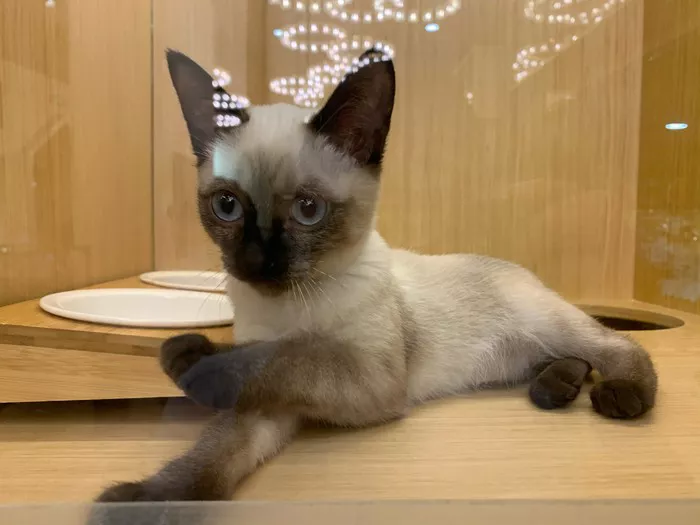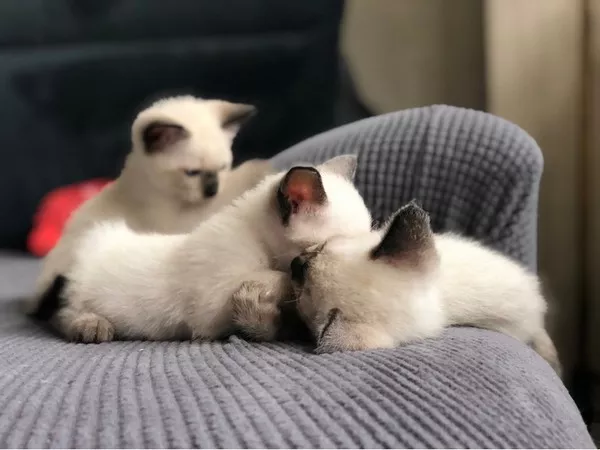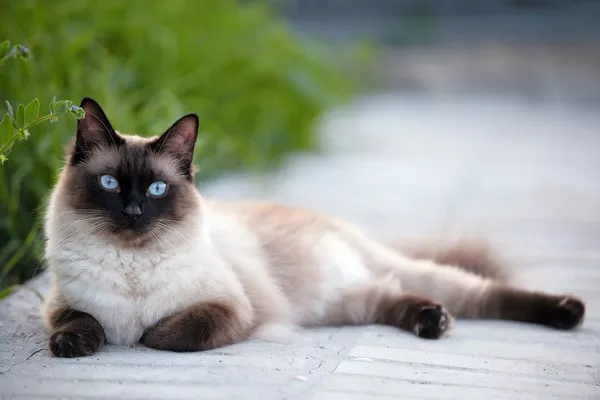Siamese cats are known for their striking appearance, playful demeanor, and vocal nature. While many Siamese cat owners appreciate their feline companions’ vocalizations as a form of communication and expression, others may find themselves puzzled or concerned when their Siamese cat begins to scream or yowl excessively. In this comprehensive guide, we’ll delve into the reasons behind why Siamese cats scream, explore potential underlying causes, and provide practical training tips for managing and addressing this behavior.
Siamese Cats
Siamese cats are a distinctive breed known for their sleek, slender bodies, striking blue eyes, and distinctive color points on their ears, face, paws, and tail. Renowned for their affectionate and social personalities, Siamese cats are often described as “extroverts” who enjoy interacting with their human companions and participating in household activities.
However, one of the most notable characteristics of Siamese cats is their vocal nature. Siamese cats are renowned for their wide range of vocalizations, which can include meowing, chirping, trilling, and, in some cases, screaming or yowling. While vocalization is a normal behavior for Siamese cats, excessive screaming or yowling may indicate an underlying issue that requires attention.
Understanding Siamese Cat Vocalizations
Before delving into the reasons why Siamese cats scream, it’s important to understand the various types of vocalizations that Siamese cats use to communicate:
Meowing: Siamese cats are known for their distinctive meows, which they use to communicate with their human companions. Meowing can indicate a variety of needs or desires, such as hunger, attention, or companionship.
Chirping and Trilling: Siamese cats may also emit chirping or trilling sounds, which are often used as a form of greeting or expression of happiness.
Screaming or Yowling: While less common than other vocalizations, Siamese cats may scream or yowl under certain circumstances. This behavior can be alarming for cat owners and may indicate distress, discomfort, or underlying health issues.
Potential Reasons Why Siamese Cats Scream
There are several potential reasons why a Siamese cat may scream or yowl excessively. Some common causes include:
Attention-Seeking Behavior: Siamese cats are highly social and affectionate animals that thrive on interaction with their human companions. If a Siamese cat feels ignored or neglected, they may resort to screaming or yowling as a way of seeking attention.
Anxiety or Stress: Siamese cats are sensitive animals that can be prone to anxiety or stress, especially in response to changes in their environment, routine, or social dynamics. Screaming or yowling may be a manifestation of stress or discomfort in these situations.
Medical Issues: In some cases, excessive vocalization in Siamese cats may be a sign of underlying medical issues or discomfort, such as pain, illness, or injury. It’s essential to rule out potential health problems by consulting with a veterinarian if your Siamese cat’s screaming behavior persists or worsens.
Reproductive Behavior: Unspayed or unneutered Siamese cats may engage in screaming or yowling behavior as part of mating or reproductive behavior. Spaying or neutering your Siamese cat can help reduce or eliminate this behavior.
Training Tips for Managing Siamese Cat Screaming
If your Siamese cat exhibits excessive screaming or yowling behavior, there are several training tips and strategies you can use to address and manage this issue:
Provide Enrichment and Stimulation: Siamese cats thrive on mental and physical stimulation, so providing plenty of enrichment activities, such as interactive toys, puzzle feeders, and climbing structures, can help keep them mentally engaged and prevent boredom-induced vocalization.
Establish a Routine: Siamese cats thrive on routine and predictability, so establishing a consistent daily routine for feeding, playtime, and social interaction can help reduce anxiety and provide a sense of security for your cat.
Address Anxiety and Stress: If your Siamese cat exhibits signs of anxiety or stress, such as hiding, pacing, or excessive grooming, identify and address the underlying triggers, such as loud noises, new environments, or changes in routine. Provide your cat with a safe, quiet space where they can retreat and decompress when needed.
Positive Reinforcement Training: Use positive reinforcement techniques, such as treats, praise, and affection, to reward desirable behaviors and discourage excessive vocalization. When your Siamese cat remains calm and quiet, offer verbal praise and rewards to reinforce the behavior.
Consult with a Veterinarian: If your Siamese cat’s screaming behavior persists or is accompanied by other concerning symptoms, such as lethargy, loss of appetite, or changes in litter box habits, consult with a veterinarian to rule out potential medical issues and develop a tailored treatment plan.
Conclusion
In conclusion, Siamese cats are known for their vocal nature, and screaming or yowling behavior is not uncommon in this breed. While occasional vocalization is normal for Siamese cats, excessive screaming or yowling may indicate underlying issues that require attention and intervention. By understanding the potential reasons behind Siamese cat screaming and implementing appropriate training tips and strategies, cat owners can effectively manage and address this behavior, ensuring a harmonious and fulfilling relationship with their feline companions.


























